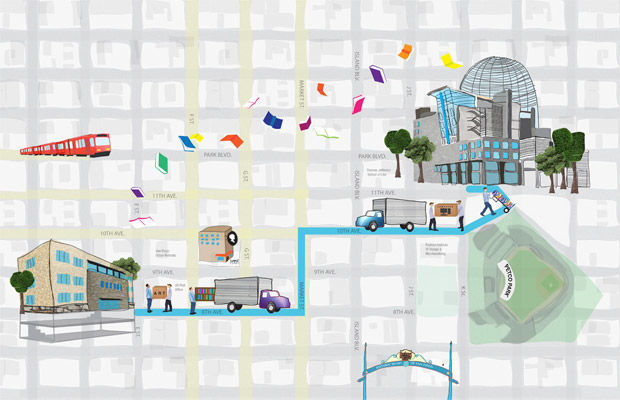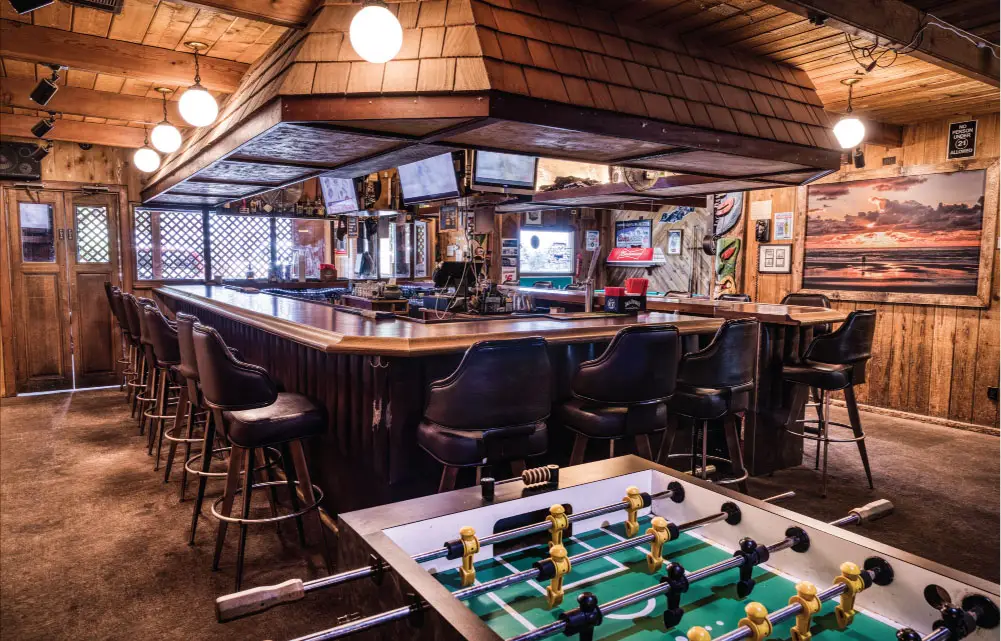
How To Move a Library Illustration
Click the photo above to view a larger version.
What’s next for the old digs? TBD! Whether real estate developers snatch it up or it’s used as storage for police evidence, no one can touch the exterior of the building or the mosaic on the sidewalk. They’re LANDMARKS!
Two-thirds of the collection has been housed in the basement, since they ran out of room years ago. Before the move, the basement books need to be “inter-filed” with the books that were on the shelves so that when they unload, everything will be in the right order.
The rare books are WRAPPED INDIVIDUALLY IN TISSUE and placed vertically, binding side down, in foam-lined cartons. Two hundred pieces of art will be moved as well.
Found! A Colonial Collectible
The library owns a 12-volume, original bound version of the writings of George Washington, 1837.
Pack it up: A Seuss sketch
An Army Service Forces poster shows a mosquito and warns of malaria. The drawing, This is Ann (1943), is by the man who would come to be known as Dr. Seuss.
Fragile! Delicate papers
The library keeps historical San Diego newspapers. The Herald dates back to 1851; The Union, 1868; the Evening Tribune, 1895.
DON’T LOSE THIS TINY TREASURE!
The World’s Smallest Book (at the time of purchase) is about the size of a microchip.
Illinois-based moving company Hallett specializes in moving libraries and has consulted on jobs from Scotland to Qatar. For the Central Library job, 23 movers and drivers will use just two trucks.
A second moving company handles the furniture. All-new computers will arrive from vendors. A third moving company, ArtWorks, will transport the rare items.
RARE BIBLES ON BOARD!
In 2007, the Dead Sea Scrolls Exhibit borrowed the Central Library’s 14 unusual bibles.
The fill rate is the percentage you’ll fill a particular shelf. The rest is left empty for future growth or for books currently checked out. San Diego’s fill rate is generous—about 65 percent. That’s a lot of wiggle room!
IN THE ARCHIVES
In lieu of a voter registration, men wrote their birthdate and -place, and even visible scars, in The Great Register, 1892. Library visitors use it for genealogy research.
No conveyor belts needed!
Three hundred dollies will carry 300 transporters (tri-wall corrugated containers). Each transporter holds 9 linear feet of books, and will cycle back once unloaded.
The new library will have SEVEN FLOORS (plus two for a charter high school). Initially, there will be 147,704 linear feet of shelving.
The new library was 30 years in the making. Architect Rob Quigley says he was a young man when the project began.
PARTNER CONTENT



















